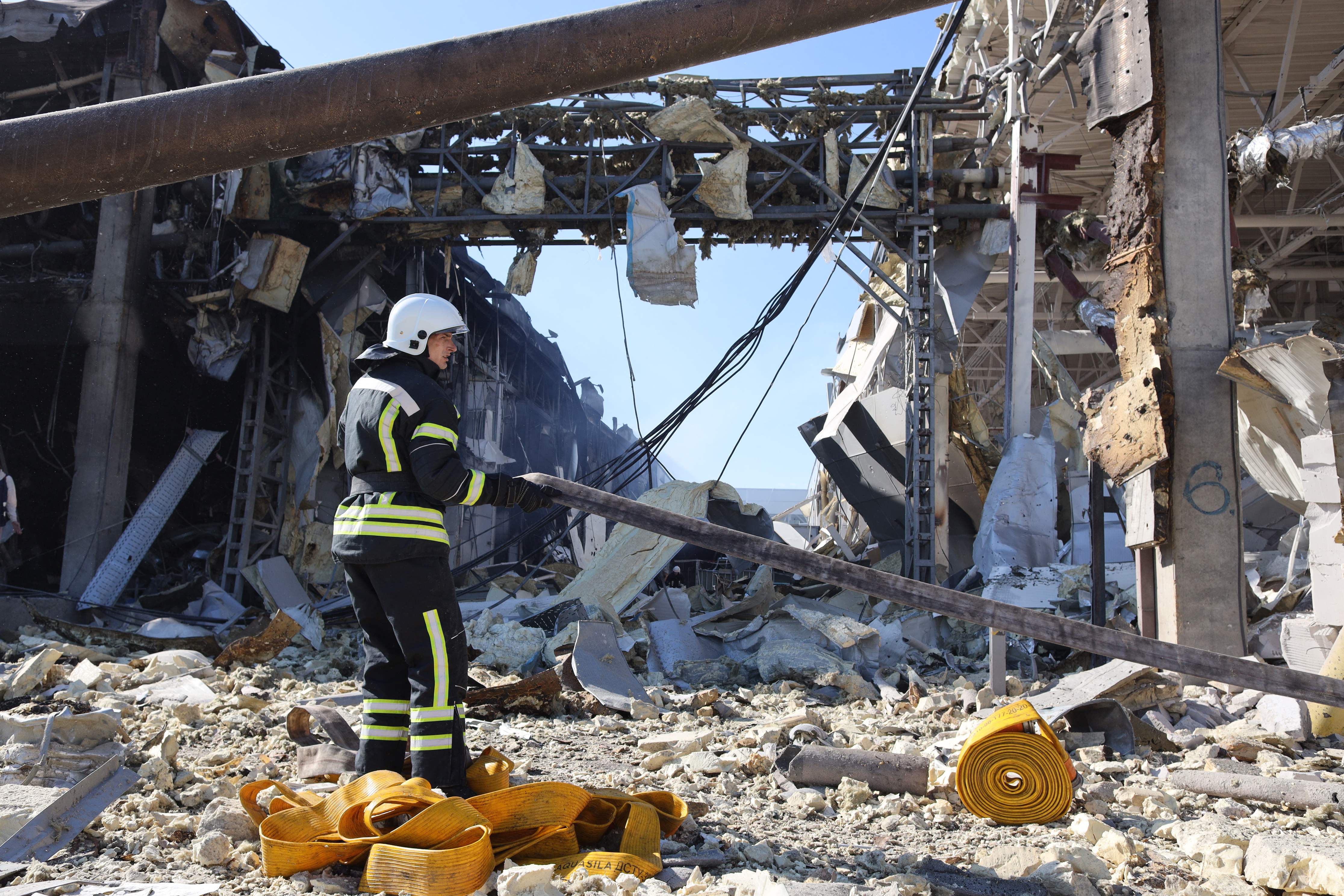Why Ukraine’s ports are so important for global food prices
Without free access to places like Odesa, critical global supply lines – and the ability of households to access sufficient and affordable food – will be crippled for several years, writes Laura Wellesley

In Russia’s war on Ukraine, global food supply has become a strategic weapon. Ukraine is one of the world’s “breadbaskets” – it is the number one exporter of sunflower oil and a major supplier of wheat and maize.
The blockade of Ukraine’s ports is choking critical supplies of these crops to the world and risks tipping vulnerable populations in developing countries closer to famine: before the invasion, Ukraine and Russia were together supplying 100 per cent of Somalia’s wheat imports, 80 per cent of Egypt’s and 75 per cent of Sudan’s.
Global food prices have reached all-time highs since Russia’s invasion and households in countries across the world are suffering the consequences. Humanitarian agencies are struggling not only to reach those suffering from an acute lack of basic supplies in Ukraine itself, but to maintain their operations in other parts of the world as food and energy prices skyrocket.
The impact of the invasion on global food security are set to worsen significantly. Ukraine’s fields would usually be harvested in June and July, with exports continuing throughout the second half of the year. The UN expects up to 30 per cent of the usual crop to go either unplanted or unharvested – with many having been forced to fight or to abandon their land, and others will have struggled to access fertiliser and fuel for farm machinery. The war has shrunk this year’s harvest, and more worrying still is the damage being done to Ukraine’s capacity to supply global markets in seasons to come.
In blockading Odesa – the country’s main conduit for exports – and the surrounding ports, and in occupying and laying siege to other major port cities, Russia has severed Ukraine’s sea links with the world. The EU is scrambling to get food moving out of Ukraine by overland routes, but it faces major obstacles in doing so. Ukraine’s roads and railways are woefully underfunded and under-maintained; moving goods around the country was a challenge even before the war, and these trade arteries have since become a target of Russian bombardment. Shipments that reach the border face long delays as they are unloaded and reloaded; a necessary step since many Ukraine’s Soviet-era railway tracks are not compatible with those of the EU.
Vladimir Putin’s targeting of port cities appears highly strategic. It gives Russia important leverage over the international community; calls from the UN to end the blockade have been met with demands that sanctions against Russia be lifted first. It also seriously damages Ukraine’s prospects for returning to its position as a global wheat and sunflower oil supplier – few companies will be willing to risk trading in the Black Sea while Russia’s blockade remains.
Importing countries are looking to other major food-producing regions to fill the gap and restore market confidence to enable food prices to fall. But across parts of the US, South America, Europe and India, farmers are struggling with exceptionally hot and dry conditions – the effects of the climate crisis. Fears of domestic shortages have prompted over 25 countries to restrict or ban exports of key crops and foodstuffs, further pushing up global prices and contributing to continued market volatility. The loss of fertiliser exports from Russia – critical to production in much of South and central America, west Africa and Europe (including Ukraine itself) – and exceptionally high global fertiliser prices will constrain harvests in seasons to come.
Unless Ukraine’s sea links to global markets can be restored, critical global food supply lines – and the ability of households around the world to access sufficient and affordable food – will be crippled for several years.
Laura Wellesley is a senior research fellow in the environment and society programme at Chatham House
Join our commenting forum
Join thought-provoking conversations, follow other Independent readers and see their replies
Comments
Bookmark popover
Removed from bookmarks